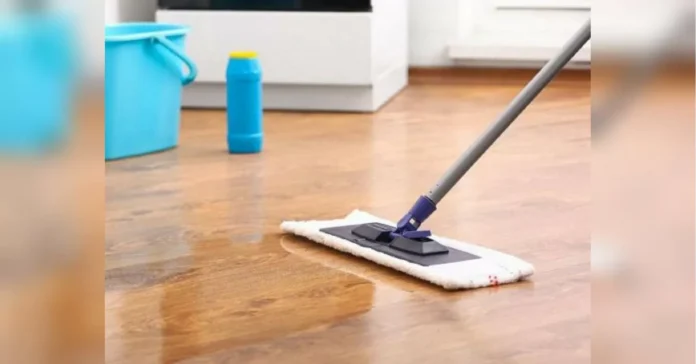Sometimes, hot water can cause damage to linoleum, laminate, and hardwood floors. This may come as a surprise to many homeowners, as hot water is often seen as a harmless and necessary part of our daily routines. However, when it comes to flooring, hot water can be a silent enemy that slowly deteriorates the quality and appearance of our floors.
One of the main reasons why hot water can be damaging to flooring is due to its temperature. Hot water can cause the materials in linoleum, laminate, and hardwood floors to expand and contract, leading to cracks, warping, and other forms of damage. This is especially true for laminate and hardwood floors, as they are made of natural materials that are more sensitive to temperature changes.
Another factor that contributes to the damage caused by hot water is its moisture content. When hot water is spilled or used for cleaning, it can seep into the seams and crevices of the flooring, causing it to swell and buckle. This can result in unsightly bumps and ridges on the surface of the floor, making it difficult to walk on and ruining its smooth appearance.
Moreover, hot water can also cause discoloration and fading on linoleum, laminate, and hardwood floors. This is because the heat from the water can break down the protective layers of these flooring materials, leaving them vulnerable to damage from sunlight and other environmental factors. As a result, the once vibrant and beautiful floors can become dull and discolored over time.
So, what can be done to prevent hot water from damaging our floors? The first step is to be mindful of how we use hot water in our homes. Avoid using hot water for cleaning floors, as the combination of heat and moisture can be particularly damaging. Instead, opt for warm or cold water and use a gentle cleaning solution specifically designed for the type of flooring you have.
In addition, it is important to clean up any spills or accidents involving hot water immediately. This will prevent the water from seeping into the flooring and causing damage. If you do notice any water damage on your floors, it is best to address it as soon as possible to prevent further deterioration.
Another way to protect your floors from hot water damage is to use rugs and mats in high-traffic areas, such as the kitchen and bathroom. These can act as a barrier between the hot water and your flooring, reducing the risk of damage. Just make sure to regularly clean and dry the rugs and mats to prevent moisture from getting trapped underneath.
If you are planning to install new flooring in your home, it is important to consider the potential impact of hot water. For example, if you have a busy household with young children or pets, it may be wise to choose a flooring material that is more resistant to heat and moisture, such as vinyl or tile. These options are not only durable but also easy to clean and maintain.
In conclusion, while hot water may seem harmless, it can actually cause significant damage to linoleum, laminate, and hardwood floors. By being mindful of how we use hot water and taking preventative measures, we can protect our floors and ensure they remain in good condition for years to come. So, the next time you reach for that bucket of hot water to clean your floors, remember the potential consequences and opt for a gentler approach. Your floors will thank you.

